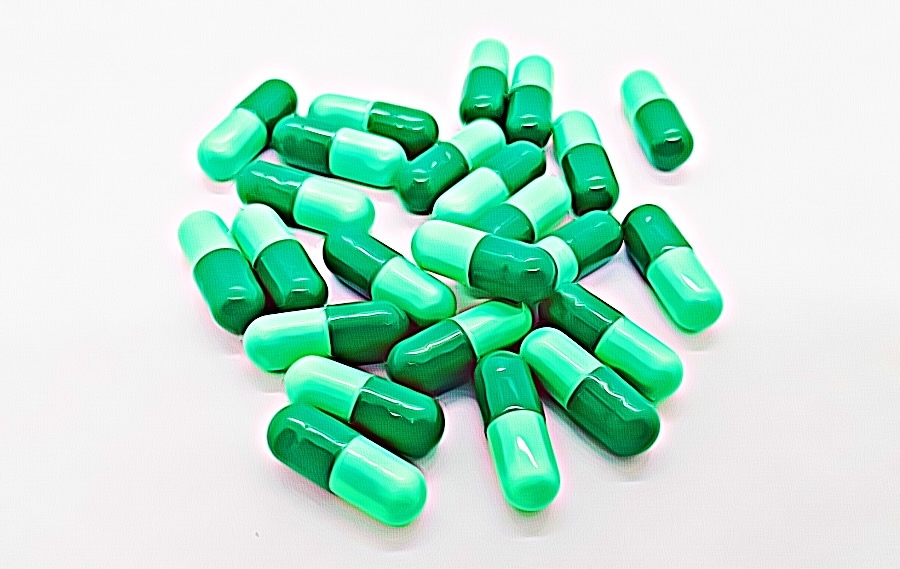Cephalexin is a kind of antibiotic that is used to treat many types of bacterial infections, from respiratory tract infections to urinary tract infections. It is also prescribed for ear and skin infections, among others.
If you are advised to take Cephalexin, you may be wondering how this drug interacts with alcohol or whether drinking alcohol while taking it interferes with its action. You are in the right place then, as this post will discuss whether or not it is safe to take cephalexin and alcohol together.
Does Alcohol Lessen the Effectiveness of Cephalexin?
Alcohol does not affect the effectiveness of cephalexin. Additionally, there’s nothing on the package insert for this drug that says it interacts with alcohol.
You should note that the usual side effects of cephalexin can be compared to the harmful effects of drinking alcohol, which include drowsiness, dizziness, and nausea. There is a possibility that drinking alcohol while taking cephalexin can heighten those effects.
For this reason, it is suggested that you finish your treatment before you drink alcohol again. It’s even better to wait for a few days after completing your dosage before you drink again to ensure that there are no traces of the drug left in your body.
Note that even though alcohol and cephalexin are safe to be taken in combination, those who are taking it for urinary tract infection should still avoid drinking alcohol during treatment. Alcohol can cause dehydration which could exacerbate the problem.

Does Cephalexin Interact With Other Drugs?
Like most drugs, cephalexin may interact with other medications, be that prescribed drugs, vitamins, or even herbal supplements. That means if you take any other medicines with cephalexin, there’s a possibility that the drug won’t work as it should, or worse, it can be harmful to your health.
For instance, taking cephalexin with certain drugs can increase the risk of experiencing side effects from it. This happens with drugs like probenecid. It’s also possible that it is the side effects of the other drugs that will be increased, as is the case with metformin. Taking cephalexin and metformin at the same time can result in kidney problems.
Therefore, it is crucial that you give your doctor a list of all the medications and supplements you are taking when you go for a checkup. This way, they can determine whether you need a different drug for your condition or if you need to stop taking any of the medications you are currently taking.
What Are the Common Side Effects of Cephalexin?
The good thing about cephalexin capsules is that you are unlikely to experience drowsiness when you take them. However, there are other side effects that you should know about before you start taking them. Some of those side effects include:
- Indigestion and stomach pain
- Irritation and inflammation of the stomach lining
- Diarrhea.
These side effects are usually mild and go away on their own in a matter of days or weeks. However, if they become persistent or severe, it’s best to talk to your doctor about it.
Are There Serious Side Effects?
Aside from the mild adverse effects mentioned above, there are also some serious ones that you should watch out for. If you experience any of these, you must call 911 at once, especially if it feels like a medical emergency that may even be life-threatening. These allergic reactions include:
- Swelling of your lips, tongue, throat, and face
- Hives
- Difficulty breathing.
How Does Cephalexin Work?
Cephalexin is part of the cephalosporins class of antibiotics. A class of antibiotics or other drugs work similarly and often used for the same conditions.
Cephalexin works in such a way that it interferes with how the bacteria’s cell walls form. In essence, it ruptures the bacterial wall and ultimately kills the bacteria. Because it is an antibiotic, it should only be used for bacterial infections. Cephalexin is sometimes prescribed for patients with allergies to penicillin or those with a heart condition that requires an upper respiratory tract procedure or a dental surgery to prevent the development of a heart valve infection.
Antibiotics won’t work with viral infections like the common cold, flu, or other viral infections. Taking antibiotics for anything other than bacterial infections can actually increase your risk of getting an infection later that would resist antibiotics.
How Should You Take Cephalexin?
There are factors that need consideration when it comes to your dosage, the form of the drug you should take, and your intake frequency. Some of these factors include:
- Age
- Weight
- The condition to be treated
- The severity of the condition to be treated
- Your pre-existing medical condition
- Your reaction to the first dose.
For adults, cephalexin is taken in the form of a capsule or a tablet that is taken by mouth. It is often taken with food every 6 to 12 hours, and the treatment may last between 7 to 14 days, depending on the severity of the condition being treated.
It is highly advised that cephalexin be taken at the same time every day. The instructions on the prescription label may be different from what your doctor advised. In such cases, you should follow your doctor’s prescription because they know your specific situation.
If you forget to take a dose, take it as soon as you remember, except if it’s closer to the time you take the next dose. If that’s the case, simply continue your regular dosing schedule. Never take a double dose to make up for missed doses.
You should expect to feel better after a few days of taking cephalexin and if you feel like there are no changes or if your condition gets worse, contact your doctor immediately. Make sure that you complete the prescription given even if you feel better in a couple of days. For instance, if you are advised to take it for fourteen days, make sure that you do complete the 14 days. Skipping or stopping could resist the infection not being treated entirely, and the bacteria may even become resistant to antibiotics.
What Precautions Should You Observe?
Before taking cephalexin, inform your doctor if you have allergies to cephalosporin antibiotics like cefaclor, cefdinir, cefadroxil cefazolin, cefepime, cefixime, and others. To be safe, let your doctor know about all your allergies so they can determine which drugs are safe for you to take.
Let your doctor know about any prescription and non-prescription drugs that you are taking or planning to take, including nutritional supplements, herbal medications, and vitamins. Also, let them know if you are on anticoagulants like warfarin or if you are taking metformin, probenecid, and similar drugs. It is because your doctor may have to change the dosage of those medications to prevent side effects.
If you have had a gastrointestinal disease, colitis, kidney problem, or liver disease, you should let your doctor know about it, too. Additionally, disclose with your doctor if you are pregnant, trying to get pregnant, or currently breast-feeding.
If someone in your family has the same symptoms that you do, you might feel tempted to simply share your cephalexin with them. Never do this because only a doctor should prescribe this antibiotic medication to patients.
Conclusion
It may be safe to consume alcohol in moderate amounts while taking cephalexin, but it’s still best that you don’t. Care should also be taken when you are already taking other medications. Proper dosage should always be observed, too.
To ensure that it is safe for you to take cephalexin, consult with your doctor and always provide them with your complete medical history, including the drugs that you are taking and all your allergies.
Sources:

